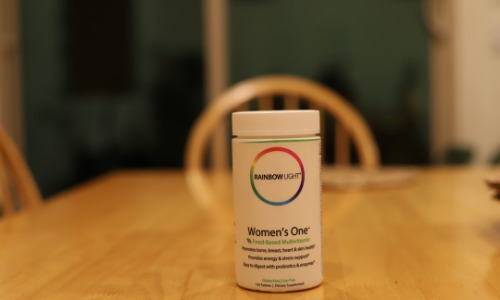The Comprehensive Health Benefits of Creatine: Fuel for Your Muscles and Mind
Introduction
Creatine is a naturally occurring compound found in small amounts in certain foods and synthesized by the body. It is primarily stored in muscles and plays a critical role in producing energy during high-intensity exercise. Beyond its well-known benefits for athletic performance, creatine has a range of health benefits that can enhance both physical and mental well-being. This article explores the extensive benefits of creatine and why incorporating it into your regimen can significantly improve your overall health.
1. Enhances Athletic Performance
Creatine is one of the most researched and effective supplements for improving athletic performance. Key benefits include:
- Increasing Strength and Power: Creatine helps produce ATP, the primary energy carrier in cells, leading to improved strength and power during high-intensity activities such as weightlifting and sprinting.
- Boosting Muscle Mass: Supplementing with creatine can enhance muscle growth by increasing water content in muscle cells and promoting protein synthesis.
- Improving Exercise Recovery: Creatine reduces muscle cell damage and inflammation following exhaustive exercise, aiding in faster recovery.
2. Supports Brain Health
Recent research indicates that creatine also benefits cognitive function and brain health. Key benefits include:
- Enhancing Cognitive Performance: Creatine supplementation has been shown to improve memory and cognitive processing, particularly in tasks that require quick thinking and decision-making.
- Protecting Against Neurodegenerative Diseases: Creatine may help protect brain cells from damage and reduce the risk of diseases like Alzheimer’s and Parkinson’s by improving cellular energy metabolism.
- Alleviating Mental Fatigue: Creatine can help reduce mental fatigue, making it beneficial for activities that require prolonged concentration and cognitive effort.
3. Promotes Muscle Health
Creatine supports overall muscle health and function, making it beneficial for both athletes and non-athletes. Benefits include:
- Preventing Muscle Cramps and Injuries: By ensuring adequate energy supply to muscles, creatine helps reduce the risk of muscle cramps and injuries.
- Supporting Muscle Function in Older Adults: Creatine supplementation can help counteract age-related muscle loss and improve strength and function in older adults, enhancing mobility and quality of life.
4. Supports Cardiovascular Health
Creatine has potential benefits for cardiovascular health through various mechanisms. Key benefits include:
- Improving Heart Function: Creatine helps maintain energy production in heart cells, supporting overall heart function and efficiency.
- Reducing Risk Factors for Heart Disease: Creatine supplementation can help lower homocysteine levels, a risk factor for cardiovascular diseases.
- Enhancing Exercise Capacity in Heart Patients: Creatine has been shown to improve exercise capacity and endurance in individuals with heart conditions, aiding in rehabilitation and overall cardiovascular health.
5. Supports Metabolic Health
Creatine can play a role in supporting metabolic health and managing conditions like diabetes. Benefits include:
- Improving Blood Sugar Control: Creatine supplementation can enhance glucose metabolism and insulin sensitivity, helping regulate blood sugar levels.
- Reducing Risk of Metabolic Syndrome: By supporting muscle mass and energy expenditure, creatine can help prevent and manage metabolic syndrome, a cluster of conditions that increase the risk of heart disease, stroke, and diabetes.
6. Enhances Bone Health
Emerging evidence suggests that creatine may also benefit bone health. Key benefits include:
- Promoting Bone Density: Creatine supplementation can help increase bone mineral density, reducing the risk of osteoporosis and fractures.
- Supporting Bone Strength: By enhancing muscle mass and strength, creatine indirectly supports bone health by reducing the risk of falls and related injuries.
Conclusion
Creatine is a versatile and highly effective supplement that offers a wide range of health benefits. From enhancing athletic performance and supporting brain health to promoting muscle, cardiovascular, and metabolic health, creatine is a valuable addition to any health regimen. Whether you are an athlete looking to improve your performance or someone seeking to support overall health and well-being, creatine can help you achieve your goals.
How to Incorporate Creatine into Your Routine
To maximize the benefits of creatine, consider the following tips:
- Choose the Right Form: Creatine monohydrate is the most researched and effective form of creatine. Look for high-quality supplements that provide this form.
- Follow a Proper Dosage: A typical creatine supplementation regimen involves a loading phase (20 grams per day for 5-7 days) followed by a maintenance phase (3-5 grams per day). Consult with a healthcare provider to determine the appropriate dosage for your needs.
- Stay Hydrated: Creatine can cause water retention in muscles, so it is essential to drink plenty of water to stay hydrated and support kidney function.
- Maintain a Balanced Diet: Ensure a balanced diet rich in nutrients to support overall health and maximize the effects of creatine supplementation.
By incorporating creatine into your diet and lifestyle, you can support your overall health and well-being, ensuring a healthier, stronger, and more vibrant life.










